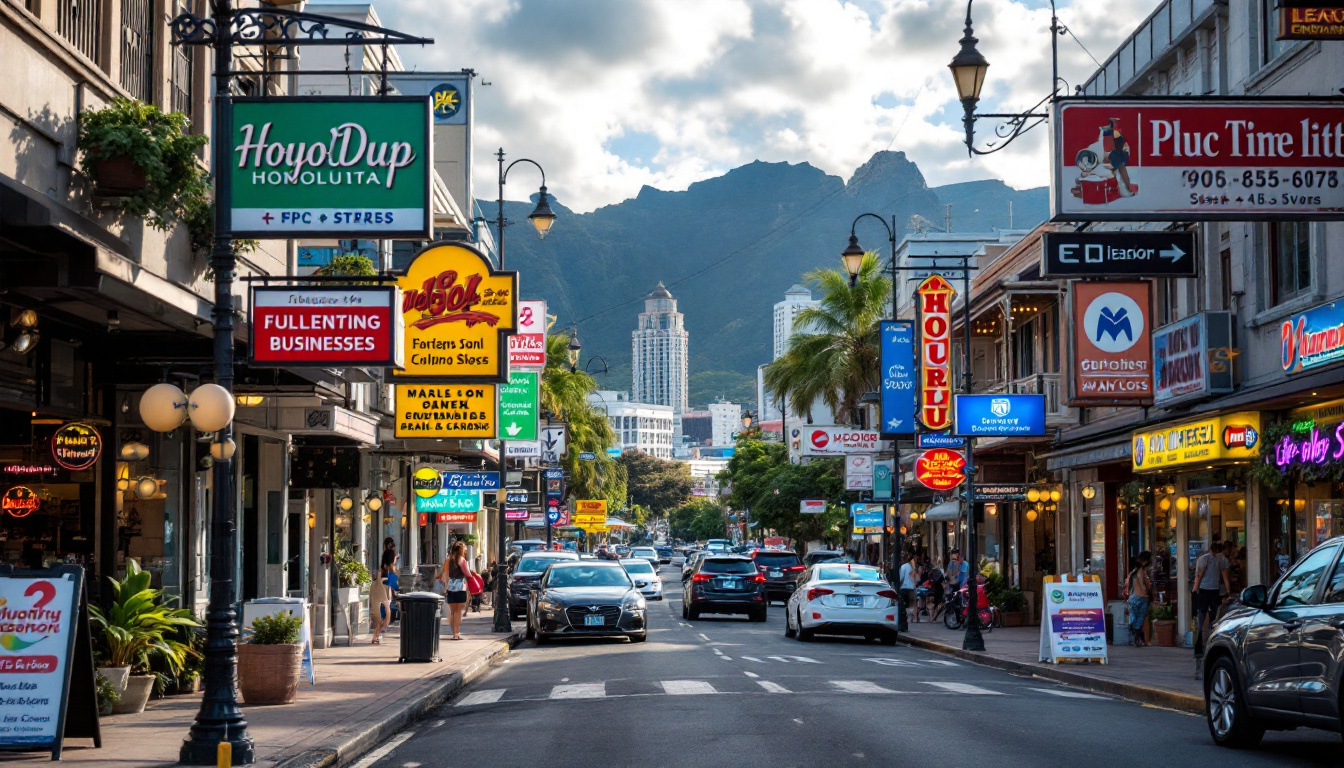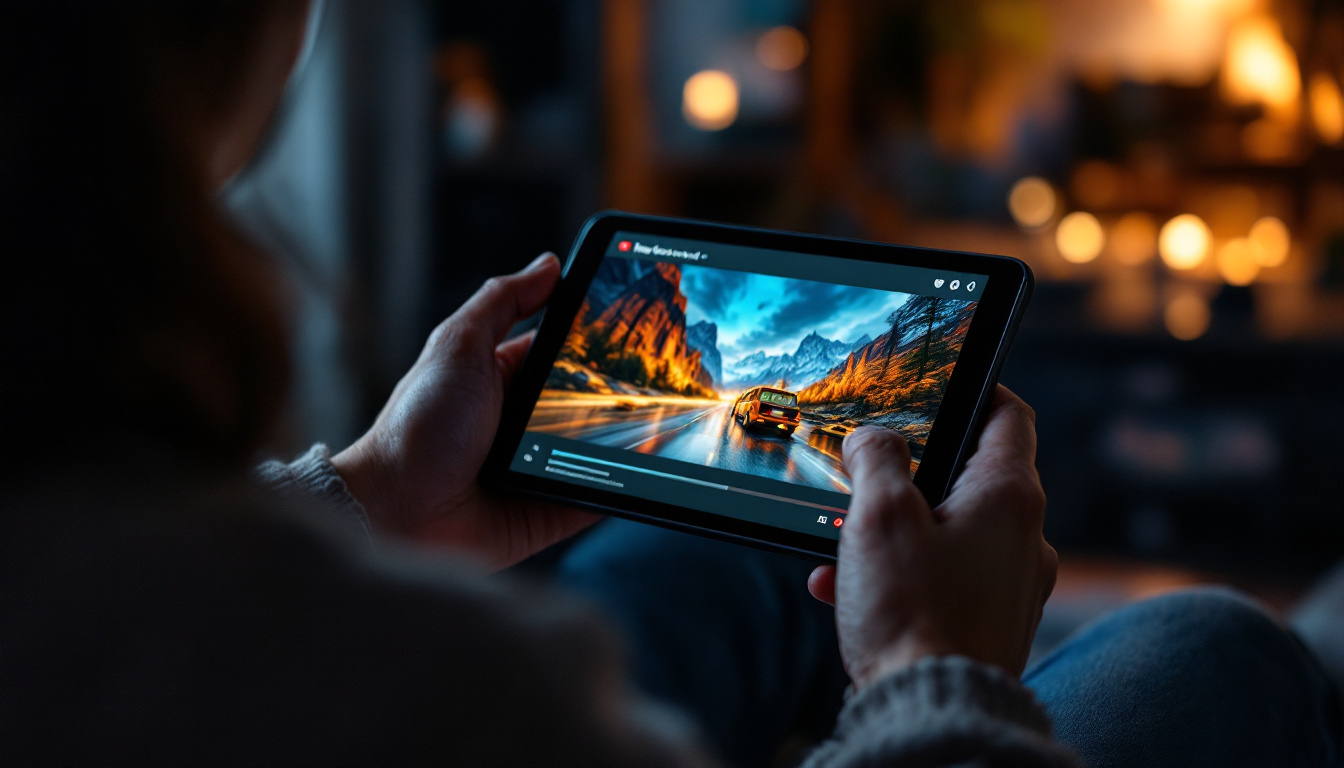10 Things Every Honolulu, HI Business Should Know About PPC

Pay-per-click (PPC) advertising offers a potent avenue for businesses in Honolulu, HI, to boost their visibility and drive targeted traffic. However, understanding the intricacies of PPC can greatly enhance a company's ability to maximize its advertising budget and achieve effective results. In this article, we will delve into ten essential aspects of PPC that every business in Honolulu should know.
Why PPC is essential for Honolulu, HI businesses
PPC advertising is particularly vital for businesses in Honolulu due to its unique market dynamics. With a large influx of tourists and a competitive local market, companies must have an impactful online presence to capture customer attention. The diverse demographic of both residents and visitors means that businesses need to tailor their marketing strategies to cater to a wide array of preferences and interests. This is where PPC shines, as it allows for the creation of targeted ads that resonate with different segments of the population, whether they are locals looking for the best dining experiences or tourists seeking unforgettable activities.
Additionally, PPC allows businesses to reach highly specific audiences quickly. Since users often turn to online searches for local services, having a PPC campaign can ensure that a Honolulu business appears prominently in search results. For example, a local restaurant can target keywords like “best seafood in Honolulu” or “family-friendly dining in Waikiki,” ensuring that their ads are shown to potential customers actively searching for those experiences. This targeted approach not only enhances visibility but also drives higher-quality traffic to the business’s website.
Furthermore, the immediacy of PPC means that businesses can see results almost instantly after launching their campaigns. This fast return on investment (ROI) makes PPC an attractive option for local businesses looking to grow. Unlike traditional advertising methods that may take weeks or months to gauge effectiveness, PPC campaigns can be analyzed in real-time, allowing businesses to make data-driven decisions that optimize their marketing efforts on the fly.
Targeted advertising
One of the main advantages of PPC is its capability for targeted advertising. Businesses can select demographics, locations, and even specific keywords that align with their target audience. For instance, a local surfing shop might focus on keywords related to “surfboards in Honolulu” to attract relevant customers. By honing in on these specific terms, the shop can ensure that their ads reach not only avid surfers but also beginners looking to take lessons or rent equipment. This precision in targeting helps businesses stand out in a crowded marketplace, where generic ads may fail to capture the interest of potential customers.
This level of targeting ensures that Honolulu businesses can allocate their marketing efforts towards audiences that are more likely to convert, thereby increasing the efficiency of their ad spend. Moreover, businesses can utilize geotargeting to reach customers in specific neighborhoods or even those who are currently visiting the area. This is particularly beneficial for seasonal promotions or events, allowing businesses to tailor their offerings to coincide with peak tourist seasons or local festivals, maximizing their chances of engagement.
Flexibility and control
PPC also offers businesses a significant degree of flexibility and control over their advertising campaigns. Companies can set their budgets, choose ad formats, and modify their campaigns based on performance metrics in real-time. This means that if a particular ad isn’t performing as expected, businesses can quickly pivot their strategy, experimenting with different headlines, images, or calls to action to see what resonates best with their audience.
This adaptability is particularly important for local businesses in a vibrant market like Honolulu, allowing them to respond to changing consumer behavior quickly. For example, if a new trend emerges, such as an increased interest in eco-friendly products, businesses can swiftly adjust their PPC campaigns to highlight sustainable offerings. This responsiveness not only helps maintain relevance in the eyes of consumers but also fosters a sense of connection with the local community, as businesses demonstrate their awareness of and engagement with current trends and customer needs.
Common misconceptions about PPC
Despite the numerous benefits, many businesses hold misconceptions about PPC that can hinder their advertising efforts. One common myth is that PPC is only for large corporations with expansive budgets.
In reality, even small and medium-sized businesses can leverage PPC effectively without breaking the bank. Many platforms offer numerous options, allowing businesses to start with minimal investment and scale as they see returns. For instance, Google Ads provides features like budget control and bidding strategies that enable advertisers to manage their spend according to their specific financial capabilities. This flexibility allows businesses of all sizes to compete in the digital marketplace, reaching their target audience without the need for a massive advertising budget.
PPC is too complicated
Another misconception is that PPC is too complicated to manage. While it does require knowledge and strategy, many tools and resources are available to assist businesses in navigating the PPC landscape. Platforms like Google Ads and Bing Ads offer user-friendly interfaces and guided setups that simplify the campaign creation process. Additionally, numerous online courses, webinars, and forums provide valuable insights and best practices for beginners. Understanding the basics can lead to powerful campaigns that drive results, and with continuous learning, advertisers can refine their strategies over time to achieve even better outcomes.
Guaranteed success
Lastly, some businesses mistakenly believe that running a PPC campaign guarantees success. While having a PPC strategy can significantly increase visibility and traffic, results depend on factors like the quality of the ads, choice of keywords, and landing page optimization. A well-crafted ad that resonates with the target audience is crucial, as is selecting the right keywords that align with user intent. Furthermore, optimizing landing pages for user experience and conversion can make a substantial difference in campaign effectiveness. Without these elements working in harmony, even the most well-funded PPC campaigns can fall short of expectations, highlighting the importance of a holistic approach to digital marketing.
How to allocate your PPC budget effectively
Proper budget allocation is crucial to the success of any PPC campaign. Honolulu businesses should start by determining their overall marketing budget and deciding how much they can safely allocate to PPC.

A common practice is to start with a small budget, test different ads, and scale successful campaigns accordingly. This approach minimizes risks while allowing businesses to gather data on what works best for their audience.
Identify high-performing keywords
Investing in keyword research is a vital aspect of budget allocation. Businesses should focus on high-performing keywords that resonate with local consumers and offer a reasonable cost-per-click (CPC). Tools like Google Keyword Planner can assist in identifying these keywords.
Monitor and adjust campaigns regularly
Regularly monitoring campaign performance is essential for effective budget usage. This process includes analyzing metrics such as click-through rates (CTR), conversion rates, and return on ad spend (ROAS). By adjusting bids and focusing funds on the most successful campaigns, Honolulu businesses can maximize their PPC investment.
The role of keywords in PPC success
Keywords are the backbone of any successful PPC campaign. Selecting the right keywords for targeting is crucial as they determine when and where ads will appear in search results.

Long-tail keywords, which are specific phrases that users are more likely to search for, can be especially beneficial for local businesses. For example, instead of targeting a broad term like “restaurants,” a Honolulu restaurant might target “seafood restaurant in Waikiki.” This specificity increases the chances of attracting highly interested customers.
Negative keywords
In addition to selecting the right keywords to target, utilizing negative keywords is equally important. Negative keywords prevent ads from showing on irrelevant searches, thus saving budget and improving metrics. For instance, a luxury hotel in Honolulu might want to exclude keywords like “cheap” or “affordable” to ensure it attracts guests looking for premium accommodations.
Keyword performance analysis
Regular analysis of keyword performance allows businesses to refine their strategies continually. By identifying which keywords drive the most conversions and which do not perform well, businesses can allocate their resources more wisely and enhance overall campaign profitability.
How PPC fits into your overall marketing strategy
Integrating PPC into a broader marketing strategy can lead to more effective overall results. PPC should not be viewed in isolation but rather as a component that complements other marketing efforts, including SEO, social media, and content marketing.
For instance, while SEO focuses on organic search results and takes time to bear fruit, PPC provides immediate visibility. This dual approach allows businesses to capture traffic through both avenues, enhancing their chance of conversion.
Synergistic campaigns
Creating synergistic campaigns that utilize both PPC and other marketing strategies can maximize reach and effectiveness. For example, a business may employ PPC to promote a special offer while simultaneously using email marketing to inform existing customers about the promotion. This coordinated approach ensures that more potential customers are reached with a consistent message.
Tracking and analyzing results
Finally, integrating tracking and analytical tools across all marketing channels, including PPC, is crucial for understanding overall performance. Platforms like Google Analytics can help businesses assess how PPC campaigns contribute to their broader marketing objectives, allowing for continuous improvement and strategic adjustments.
In conclusion, understanding PPC intricacies can provide Honolulu businesses a competitive edge in today's digital landscape. By addressing misconceptions, effectively allocating budget, recognizing the importance of keywords, and integrating PPC into a cohesive marketing strategy, businesses can maximize the efficacy of their advertising efforts and drive meaningful results.

As a Google Ads expert, I bring proven expertise in optimizing advertising campaigns to maximize ROI.
I specialize in sharing advanced strategies and targeted tips to refine Google Ads campaign management.
Committed to staying ahead of the latest trends and algorithms, I ensure that my clients receive cutting-edge solutions.
My passion for digital marketing and my ability to interpret data for strategic insights enable me to offer high-level consulting that aims to exceed expectations.





